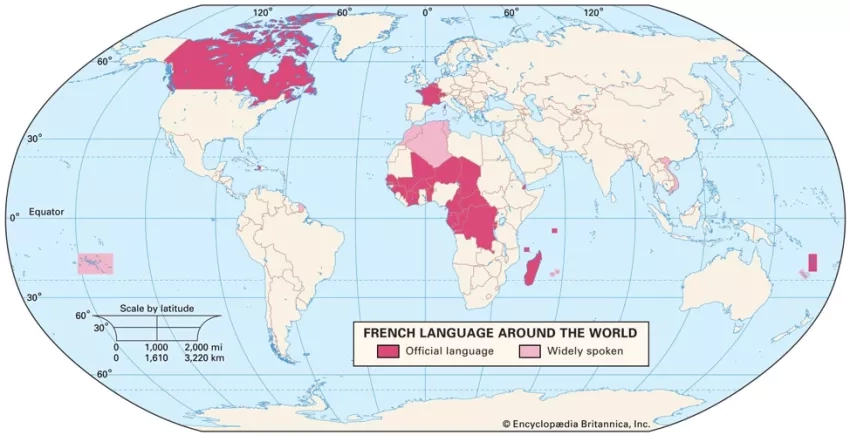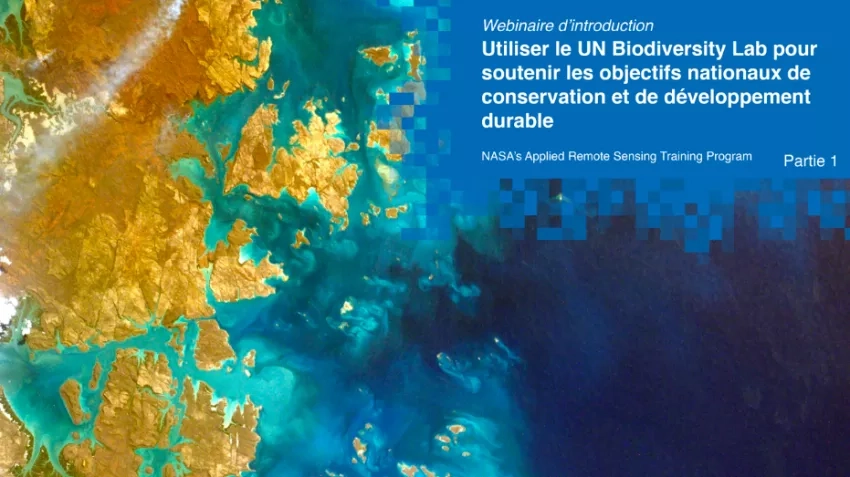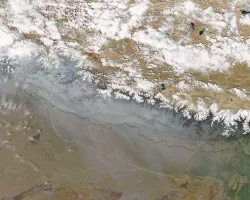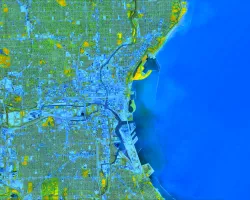For the first time, ARSET held trainings in English, Spanish and in French and it resulted in some of the highest numbers of attendance the program has seen in its 10-year history.
Roughly 275 million people speak French worldwide, the majority of them located in Europe, West Africa, and Canada. For a March 21 training on the use of the UN Biodiversity Lab, the Capacity Building Program's Applied Remote Sensing Training (ARSET) added French to its English and Spanish offerings.
For many years, ARSET has received requests to incorporate additional languages to its training portfolio. Spanish was added to the program in 2009. In response to this growing demand, the program has decided to increase its efforts to reach new audiences; and a new partnership has enabled the program to do just that by offering its first training in French, alongside the usual offerings of English and Spanish.
This training, titled "Using the UN Biodiversity Lab to Support National Conservation and Sustainable Development Goals," came as a result of a partnership with the UN Development Programme (UNDP). This is a three-part training on the use of the UN Biodiversity Lab, with each part having three sessions; one in English, one in Spanish, and one in French. The first round of sessions saw online participation from over 1,700 people from over 125 countries and 1,000 unique organizations, some of the highest numbers of attendance the program has seen in its history.
As the program continues to grow, additional time and resources could be devoted to integrating the French translation process into the training development framework, and trilingual trainings have the potential to become a standard fixture within ARSET’s training repertoire. It is a fair bet that as these trainings become more commonplace and the word spreads, attendance numbers will continue to rise with the door being opened to an entirely new audience of learners.
With online training formats and freely available tools and data, ARSET is uniquely equipped to offer training on the use of NASA satellite data en masse. This, along with the remote sensing expertise of its instructors, gives ARSET’s remote sensing trainings a certain je ne sais quois that keeps participants coming back, and the program’s novel approach to educating prospective remote sensers worldwide continues to break down barriers to entry into this growing field. If you would like to build your résumé with the skills to use NASA Earth data, register for one of our upcoming trainings or check out our YouTube series.





